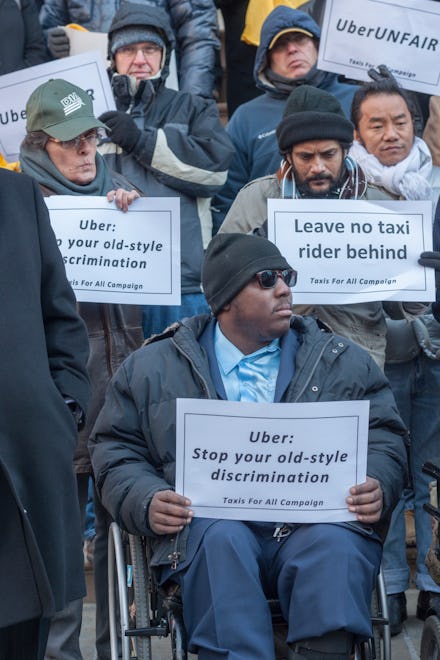The Biden administration is suing Uber over its “wait time” fee
The policy is discriminatory against people with disabilities, the DOJ argues.

The Biden administration this week filed a lawsuit against transportation giant Uber, alleging the company discriminates against passengers with disabilities by charging a “wait fee” that ends up costing more for people who need longer time to enter a vehicle.
“People with disabilities deserve equal access to all areas of community life, including the private transportation services provided by companies like Uber,” said Kristen Clarke, the assistant attorney general for the DOJ’s Civil Rights Division, in a statement announcing the suit. “This lawsuit seeks to bring Uber into compliance with the mandate of the Americans with Disabilities Act while sending a powerful message that Uber cannot penalize passengers with disabilities simply because they need more time to get into a car. Uber and other companies that provide transportation services must ensure equal access for all people, including those with disabilities.”
The suit alleges Uber is in violation of Title III of the Americans with Disabilities Act, which “prohibits discrimination on the basis of disability in the activities of places of public accommodations.” At issue is the company’s policy of adding a separate fee when cars wait for longer than two minutes after they arrive at a pickup destination. In a statement to NPR, an Uber spokesperson insisted that the company was in compliance with the ADA, and stressed that wait fees would be waived for riders who could verify their disabilities.
“We recognize that many riders with disabilities depend on Uber for their transportation needs, which is why we had been in active discussions with the DOJ about how to address any concerns or confusion before this surprising and disappointing lawsuit,” the statement read in part.
Nevertheless, the Justice Department claims that the wait fee policy is acutely harmful to prospective riders who, in the examples offered, may need additional time to break down a wheelchair before entering a car, or who are visually impaired and require longer time to safely navigate to the designated pickup spot. The suit asks Uber to modify its wait fee policy, and reimburse those who may have already been charged an undue wait fee, among other changes.
“Uber’s wait time fees take a significant toll on people with disabilities,” said Acting U.S. Attorney Stephanie M. Hinds, who represents the Northern District of California, where the suit was filed. “Passengers with disabilities who need additional boarding time are entitled to access ridesharing services without discrimination. This lawsuit seeks to assist people with disabilities to live their lives with independence and dignity, as the ADA guarantees.”
Last summer, Uber competitor Lyft settled with the Justice Department over allegations it too discriminated against passengers with disabilities by refusing to serve clients who use walkers and wheelchairs.